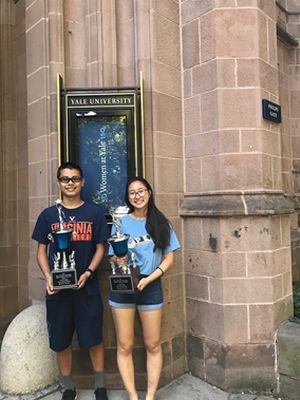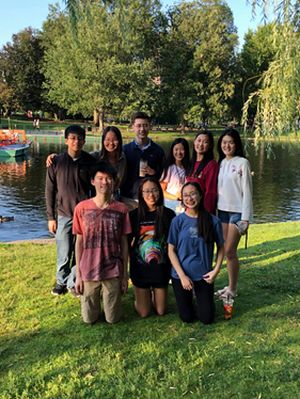[JSR] Debating and its Impact on High School Students
Throughout high school, students fill their time with studying and diverse extracurricular activities, ranging from soccer to music to art. But perhaps one of the most strenuous yet rewarding activities is debate. Debating as an extracurricular activity represents a serious time commitment with endless hours of practice and dedication to achieve goals. It takes time out of weekends; tournaments are held in different states around the US during these times. Most importantly, it requires arguing about a given topic, understanding its implications in the real world, and being a persuasive speaker to the judge.
Allison Moon, Grade 10 Winston Churchill High School
Typically, a topic is assigned to each month and students are required to research, write up arguments, and debate. This month the topic is “Resolved: the benefits of the United States federal use of offensive cyber operations outweigh the harms.” Previous topics have been “Resolved: the European Union should join the Belt and Road Initiative.” In essence, the point is to become the ultimate expert on each topic within one month.

Allison Moon and Bobby Diaz won second place at the National Yale Invitational Public Forum Tournament in the Junior Varsity Division this fall.
But it can also have drawbacks. Johnathan Sun, tenth grade debater at Richard Montgomery High School, finds that it can retract from your mental health. “Imagine hundreds of high schoolers, with APs and IBs and college applications, pulling all-nighters and flying off to colleges and high schools every weekend for months on end.” Despite all this, Sun believes that debate is worth the effort. “Debaters are a special kind of people — we work hard, and we play hard. It sounds like a cliché, but it's really true.” Dong corroborates that “debate is one of the hardest and most academically challenging activities of the nation. It takes time and effort, especially when you are traveling out [of the state] every single weekend [to tournaments]. It develops self-discipline as you are completely responsible for yourself whether it’s catching up on missing school work or taking care of yourself at out of state tournament. [Ultimately], it helps you manage stress and really organize your schedule in a way that best maximizes productivity.”

Debaters at National Debate Forum or NDF Debate Camp










with the Korea JoongAng Daily
To write comments, please log in to one of the accounts.
Standards Board Policy (0/250자)